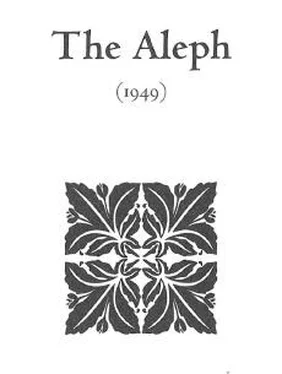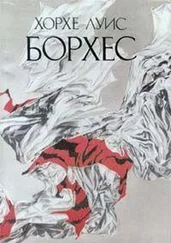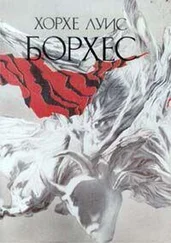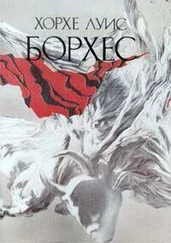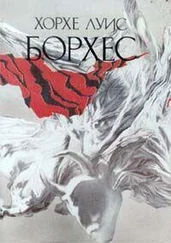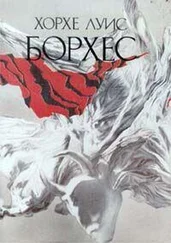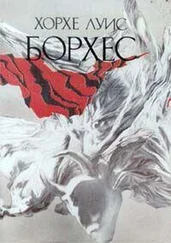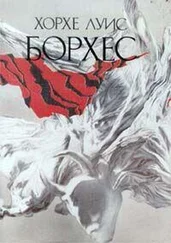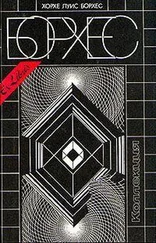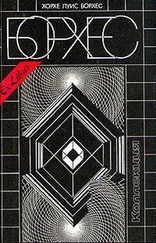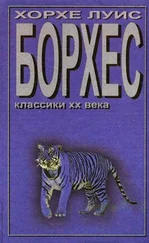Хорхе Борхес - Collected Fictions
Здесь есть возможность читать онлайн «Хорхе Борхес - Collected Fictions» весь текст электронной книги совершенно бесплатно (целиком полную версию без сокращений). В некоторых случаях можно слушать аудио, скачать через торрент в формате fb2 и присутствует краткое содержание. Год выпуска: 1999, ISBN: 1999, Издательство: Penguin (UK), Жанр: Старинная литература, на английском языке. Описание произведения, (предисловие) а так же отзывы посетителей доступны на портале библиотеки ЛибКат.
- Название:Collected Fictions
- Автор:
- Издательство:Penguin (UK)
- Жанр:
- Год:1999
- ISBN:9780140286809
- Рейтинг книги:5 / 5. Голосов: 1
-
Избранное:Добавить в избранное
- Отзывы:
-
Ваша оценка:
- 100
- 1
- 2
- 3
- 4
- 5
Collected Fictions: краткое содержание, описание и аннотация
Предлагаем к чтению аннотацию, описание, краткое содержание или предисловие (зависит от того, что написал сам автор книги «Collected Fictions»). Если вы не нашли необходимую информацию о книге — напишите в комментариях, мы постараемся отыскать её.
Collected Fictions — читать онлайн бесплатно полную книгу (весь текст) целиком
Ниже представлен текст книги, разбитый по страницам. Система сохранения места последней прочитанной страницы, позволяет с удобством читать онлайн бесплатно книгу «Collected Fictions», без необходимости каждый раз заново искать на чём Вы остановились. Поставьте закладку, и сможете в любой момент перейти на страницу, на которой закончили чтение.
Интервал:
Закладка:
For these notes, I am deeply indebted to A Dictionary of Borges by Evelyn Fishburn and Psiche Hughes (London: Duckworth, 1990). Other dictionaries, encyclopedias, reference books, biographies, and works of criticism have been consulted, but none has been as thorough and immediately useful as the Dictionary of Borges. In many places, and especially where I quote Fishburn and Hughes directly, I cite their contribution, but I have often paraphrased them without direct attribution; I would not want anyone to think, however, that I am unaware or unappreciative of the use I have made of them. Any errors are my own responsibility, of course, and should not be taken to reflect on them or their work in any way.
Another book that has been invaluable is Emir Rodriguez Monegal's Jorge Luis Borges: A Literary Biography (New York: Paragon Press, [paper] 1988), now out of print. In the notes, I have cited this work as "Rodriguez Monegal, p. x."
The names of Arab and Persian figures that appear in the stories are taken, in the case of historical persons, from the English transliterations of Philip K. Hitti in his work History of the Arabs from the Earliest Times to the Present (New York: Macmillan, 1951). (JLB himself cites Hitti as an authority in this field.) In the case of fictional characters, the translator has used the system of transliteration implicit in Hitti's historical names in comparison with the same names in Spanish transliteration.— Translator.
Notes to A Universal History of Iniquity
For the peculiarities of the text of the fictions in this volume, the reader is referred to A Note on the Translation.
Preface to the First Edition
* Evaristo Carriego: Carriego (1883-1912) was in fact a popular poet and playwright, and the "particular biography" was the one Borges himself wrote of him (published 1930). Carriego was only a mediocre poet, perhaps, and he left but a single volume (Misas herejes, "Heretical Masses") upon his early death by tuberculosis, but his ties to "old Buenos Aires," and especially to the lower-class (and mostly Italian) suburb of Palermo, made him an important figure for Borges. While it is probably exaggerated to say that much of JLB's fascination with the compadre (see the note to the title of "Man on Pink Corner" below) and the knife fights and tangos that are associated with that "type" can be traced to Carriego, there is no doubt that as an example of the literary possibilities to which such subject matter can be put, Carriego was very important to JLB and JLB's imagination. Carriego was also the first professional writer Borges had ever run across, a man who made his living at writing, and not some "mere" amateur; he held out therefore the possibilities of a true literary "career" to match Borges's clear literary "calling."
Preface to the 1954 Edition
* Baltasar Gradan: Gracián (1601-1658) was a Jesuit priest and a writer (and sometime aesthetician) of the baroque. His name is associated with a treatise called Agudeza yarte de ingenio ("Keenness of Mind and the Art of Wit"), and with the Spanish baroque poets Francisco Quevedo and Luis de Góngora.
The Cruel Redeemer Lazarus Morell
* Pedro Figari: figari (1861-1938) was a Uruguayan painter "who used fauvist techniques [Rodriguez Monegal, p. 194]," (this perhaps explains his success in Paris, where he lived from 1925 to 1933) and who spent an important part of his life in Buenos Aires (1921-1925). Borges knew the painter rather well and wrote an introdution to a book on him; Figari was also feted by the literary group associated with the review Martín Fierro, of which Borges was an important member. His work "was inspired by the life of Negroes and gauchos" (Oeuvres complètes, vol. I, ed. Jean Pierre Bernés [Paris: Gallimard, p.1489].
* Vicente Rossi: Rossi (1871-1945) was the author of a volume titled Cosas de negros ("Negro Matters" [1926]), to which this mention surely points, but he also produced the first reference book on the birth and development of Argentine theater and an important book on the gaucho. He was, then, something of a folklorist and literary historian. In Evaristo Carriego, Borges calls Rossi "our best writer of combat prose."
* Antonio ("Falucho") Ruiz: "Falucho"(d.1824) was a black Argentine soldier who fought in the wars of independence. His statue once stood near that of General San Martin near the center of Buenos Aires.
* The stout bayonet charge of the regiment of "Blacks and Tans"... against that famous hill near Montevideo: On the last day of 1812 a troop of soldiers made up of Negroes and mulattoes (the reference to the English military group organized to fight the Irish independence uprising is the translator's, but it is almost inevitable, and the irony of the situation would not be lost on Borges; see the story "Theme of the Hero and Traitor" in Fictions), under the leadership of the Argentine general Miguel Estanislao Soler, defeated the Spanish troops at the Cerrito, a prominent hill overlooking Montevideo.
* Lazarus Morell: This particular rogue's true name seems to have been John A. Murrell (Bernard De Voto, Mark Twain's America [Boston: Little, Brown, 1932], pp. 16-17 et seq.) or Murell (Mark Twain, Life on the Mississippi, intra. James M. Cox [New York: Penguin, 1984 (orig. pubi, in United States by James R. Osgood in 1883)].) Interestingly, Twain never gives the rogue's first name; it is possible, then, that JLB, needing a name, took "Lazarus" to fit the ironic notion that Morell gave a second life to the slaves he freed.
* "I walked four days.. .my course for Natchez": Here Borges is quoting/translating fairly directly from Twain's Life on the Mississippi, pp. 214-215 (Penguined.cited in the note just above). Throughout this story, JLB inserts a phrase here, a sentence there from Twain, but then, when he says he is quoting, as in the case of the preaching and horse thieving, he is in reality inventing the quotation and imagining a scene that Twain only suggests.
The Widow Ching—Pirate
* Aixa's rebuke to Boabdil: Boabdil isAbu Abdallah, the last Moorish king of Granada (r. 1482-1492); Aixa was his mother. The reproof that supposedly was given Boabdil by Aixa upon the Moors' defeat and expulsion from what had been Islamic Spain is substantially as Borges reports it here, and the words here given Anne Bonney are substantially those given in Gösse's History of Piracy, p. 203. (See the "Index of Sources" p. 64.) p. 21: Rules for pirates: These may actually be found, as quoted, but in a different order, in Gösse's History of Piracy, p.272. (See "Index of Sources," p. 64, for bibliographical information.) * Quotation on peace in the waters of China: Gosse, p.278. Note also that the widow's new name, while indeed given in Gosse, is attributed to another personage who learned a lesson from the emperor. This is but one of countless examples of the way JLB changes things, even dates, to fit his purposes, purposes that one must confess sometimes are enigmatic. Why change the date of Tom Castro's being found guilty from February 26 to February 27? Monk Eastman's death from December 26 to December 25? The spelling of Morell/Murrell/Murell's name? Here the theory of translation must needs be a theory of artistic creativity.
Monk Eastman, Purveyor of Iniquities
* Resigned: Borges uses this curious word, which I have not wanted to "interpret," apparently to indicate the fatedness, or ritual aspect, of this duel. It is as though the word indicated "resigned to fate." This aspect of violence, of duels, can be seen throughout Borges; I would especially refer the reader to the story titled "The Encounter," in the volume Brodie's Report, p. 364.
Читать дальшеИнтервал:
Закладка:
Похожие книги на «Collected Fictions»
Представляем Вашему вниманию похожие книги на «Collected Fictions» списком для выбора. Мы отобрали схожую по названию и смыслу литературу в надежде предоставить читателям больше вариантов отыскать новые, интересные, ещё непрочитанные произведения.
Обсуждение, отзывы о книге «Collected Fictions» и просто собственные мнения читателей. Оставьте ваши комментарии, напишите, что Вы думаете о произведении, его смысле или главных героях. Укажите что конкретно понравилось, а что нет, и почему Вы так считаете.
